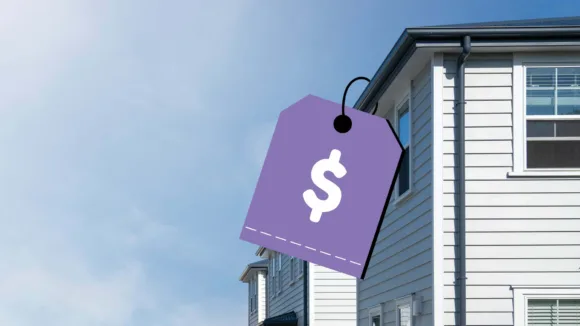
Property Market
What is the average house price in New Zealand?
Find out the average house prices by council area in New Zealand in 2025. Here's everything you need to know including what factors make house values go up.
Property Market
2 min read
Author: Ed McKnight
Our Resident Economist, with a GradDipEcon and over five years at Opes Partners, is a trusted contributor to NZ Property Investor, Informed Investor, Stuff, Business Desk, and OneRoof.
Reviewed by: Andrew Nicol
Managing Director, 20+ Years' Experience Investing In Property, Author & Host
Property prices have been increasing for five months in row. At a national level, they bottomed out in May 2023. Since then, property prices have risen 3.8%.
But how much will house prices increase in 2024? While no-one really knows, you can get a helpful steer by looking at forecasts by the major banks.
Of the lot, Westpac’s predictions are the most aggressive. They say house prices could increase 7.7% in 2024.
At the other end, ASB forecasts an increase of only 2.5%.
Between them are BNZ, which forecasts a 6.7% increase, followed by ANZ at 5.8%.
On average, our country’s major financial institutions suggest an increase of 4.6% could be likely.
But why the variation between banks? They all have access to the same data. Why does Westpac look at the numbers and say 7.7% while ASB thinks a lower number is right?
Speaking to OneRoof, Westpac’s Chief Economist Kelly Eckhold said net migration is the big driver in their prediction.
In the last 12 months, 164,000 have entered New Zealand and only 45,000 have left. That means immigration has increased our population by 119,000 (about 2%) in the last 12 months.
It’s a large difference. Typically it takes around 12 months for high immigration to impact property prices.
According to Westpac, the increase on its own could push house prices up 15-20%.
But the property market is still facing headwinds. Next year the banks will still have high interest rates and strict lending criteria. Many forecasters also expect unemployment to increase. All these factors work against increasing property prices.
That’s how Westpac gets it down to 7.7%.
ASB has been looking at the same migration data, but interprets it differently. They think high interest rates and tight bank criteria will keep house prices in check.
The other main difference is when the banks released their forecasts.
ASB released in August; Westpac was in November. This means Westpac had 3 more months of data to look at.
At the time, ASB was making their predictions based off 2 month’s worth of house price growth.
Today, house prices are up 3.8% – 5 consecutive months of increases. That’s an average of 0.75% per month on an annual basis that’s over 9%.
That starts to make Westpac’s 7.7% prediction look realistic.
But a word of caution when looking at these forecasts. They consider house prices at the national level. The national house price is an average of what’s going on around the country. So Auckland property prices could go up quickly, while some other areas remain flat. The national average can make it look like property prices are going up everywhere, when they’re not.
All major banks predict property price increases, but that doesn’t mean house values will go up in your area.
For example, NZ house prices bottomed out in May 2023. But in the latest data to October 2023, prices in Whangarei were still falling and yet to bottom out.
That’s why it’s important to ask how forecasters came to their conclusions. Net migration is the major factor in most house price forecasts so you need to ask yourself, “Where are most of these migrants settling?”
Places where most migrants settle are likely get some of the strongest price growth.
New arrivals tend to settle in the main centres; a disproportionate number of those stay in Auckland.
Major cities like Auckland, Christchurch and Wellington will likely see house prices increase the fastest.
Our Resident Economist, with a GradDipEcon and over five years at Opes Partners, is a trusted contributor to NZ Property Investor, Informed Investor, Stuff, Business Desk, and OneRoof.
Ed, our Resident Economist, is equipped with a GradDipEcon, a GradCertStratMgmt, BMus, and over five years of experience as Opes Partners' economist. His expertise in economics has led him to contribute articles to reputable publications like NZ Property Investor, Informed Investor, OneRoof, Stuff, and Business Desk. You might have also seen him share his insights on television programs such as The Project and Breakfast.